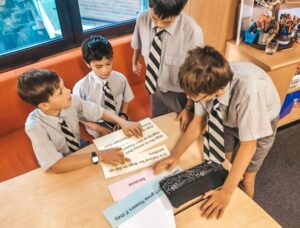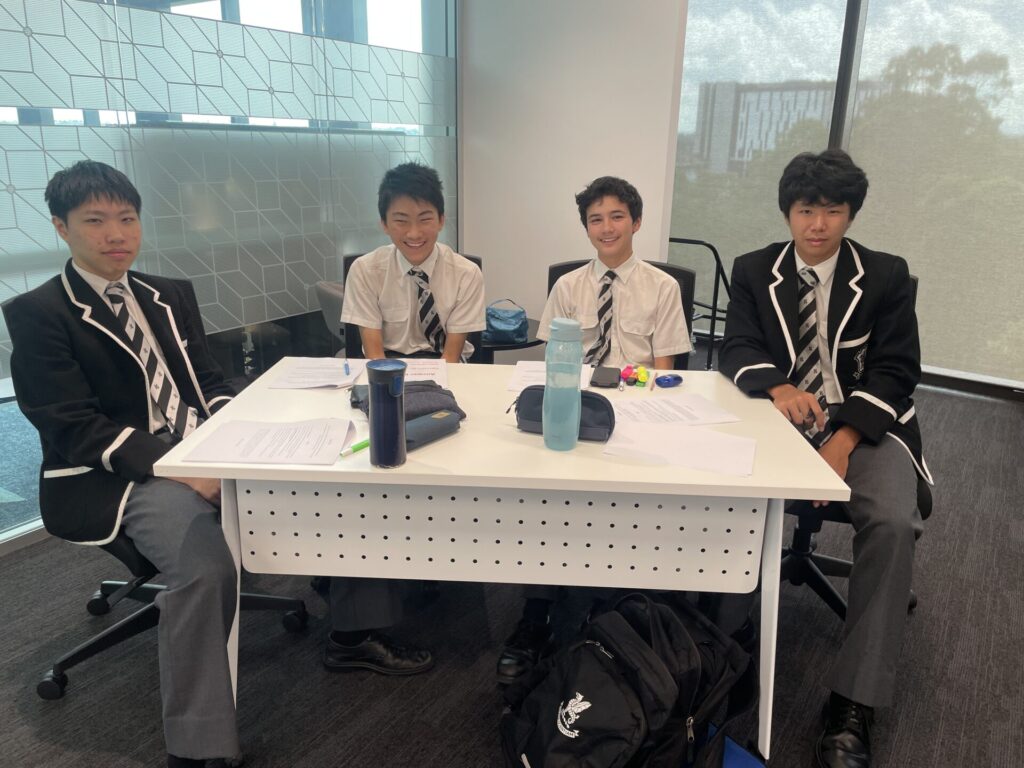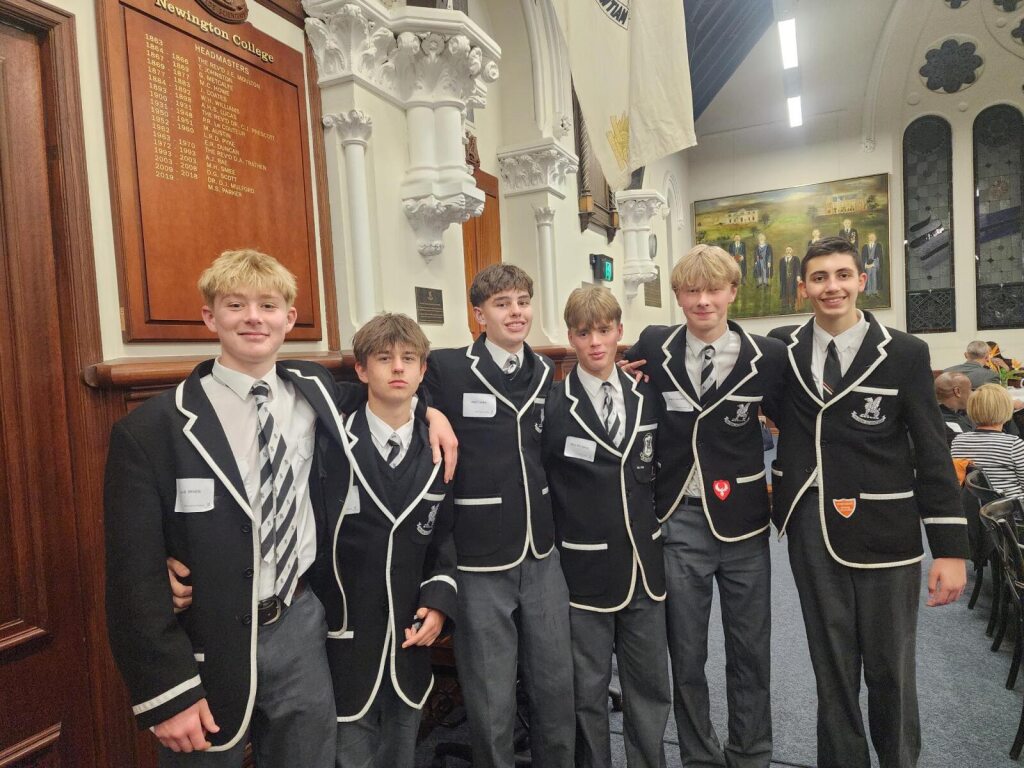Philosophical thinking starts early

Dr Britta Jensen recently joined Newington’s Philosophy and Religious Studies (PRS) staff. She is leading the development of a new, bespoke program of philosophy for Newington’s younger learners, with Newington now the first school in NSW to offer a philosophy program from Kindergarten to Year 12. Below, Dr Jensen tells us more about how this program is empowering our Prep school boys develop great hearts, inspired minds, and strong wings.
Each Wyvern boy from Kindergarten to Year 6 now engages in timetabled, weekly philosophy lessons. Boys don’t learn about philosophy but instead they do philosophy. Using Philosophy for Children (P4C) methodology, boys explore and practise how to think philosophically. In using the foundational P4C practice of Community of Inquiry, Wyvern philosophy lessons assist boys to build three distinct but related types of integrity: the virtue of personal integrity, integrity of community and integrity of the inquiry process.
What is a philosophy lesson like?
The Federation of Asia-Pacific Philosophy in Schools Associations trained teaching team works collaboratively to design and co-teach concept-based Philosophy lessons by using rich children’s literature to stimulate student-driven inquiry. For example, in reading Leo Lionni’s Frederik and later comparing this story with the classic French fable ‘La Cigale et la fourmi’ (The Cricket and the Ant), Year 6 boys explored their own ideas about the value and nature of work, fitting in with the status quo and the value of creative work. Philosophical dialogue stemming from these ideas ensued across three weeks in which boys queried whether work is best defined by the payment one receives for it, how to establish the value of artistic work, and the distinction between work and play. Working in communities of inquiry supports boys in developing reflective thinking skills.
What are the benefits?
Philosophy helps to support boys’ personal integrity as they engage in dialogue in relation to concepts such as fairness, justice, friendship and care. Earnest sharing of one’s point of view, responding with honesty, and being consistent are part and parcel of grappling with timeless philosophical questions. In the realm of philosophy, there is often disagreement between boys who hold and express different views. Through respectful dialogue, boys build tolerance for difference, which serves to strengthen the integrity of the diverse community of learners. Through thinking together as a community, philosophical dialogue helps to develop the collaborative integrity of the group. Community skills such as speaking, listening, turn-taking and building on are explicitly practised, refi ned and evaluated.
Finally, through engaging with facilitated, rigorous dialogue, Wyvern learners develop appreciation of integrity of the process of inquiry, by working through conceptual challenges and subsequently reflecting on this work. Because of the explicit focus on critical and creative thinking, philosophy lessons support metacognitive growth. Explicit teaching of thinking tools and the ways in which the tools are used assists boys to appreciate and channel the power of inquiry. These three types of integrity instantiate three elements of Newington’s strategic vision – to empower boys to develop great hearts, inspired minds and strong wings.

‘Philosophy to me is a time when you get to ask about something you have read in a lesson lately and put time into thoughts or questions. It is useful because you get to sit down and ask a few questions and think about it.’
Leo Davies (Year 4)
‘Philosophy is the opportunity to view the world from multiple perspectives. It allows me to connect to the world and ask questions about the purpose of life to uncover truths about it. It makes me feel powerful by being able to talk about life’s tough questions.
Fintan Daly (Year 5)
This article first appeared in Newington’s 2021 Autumn edition of NEWS magazine.



